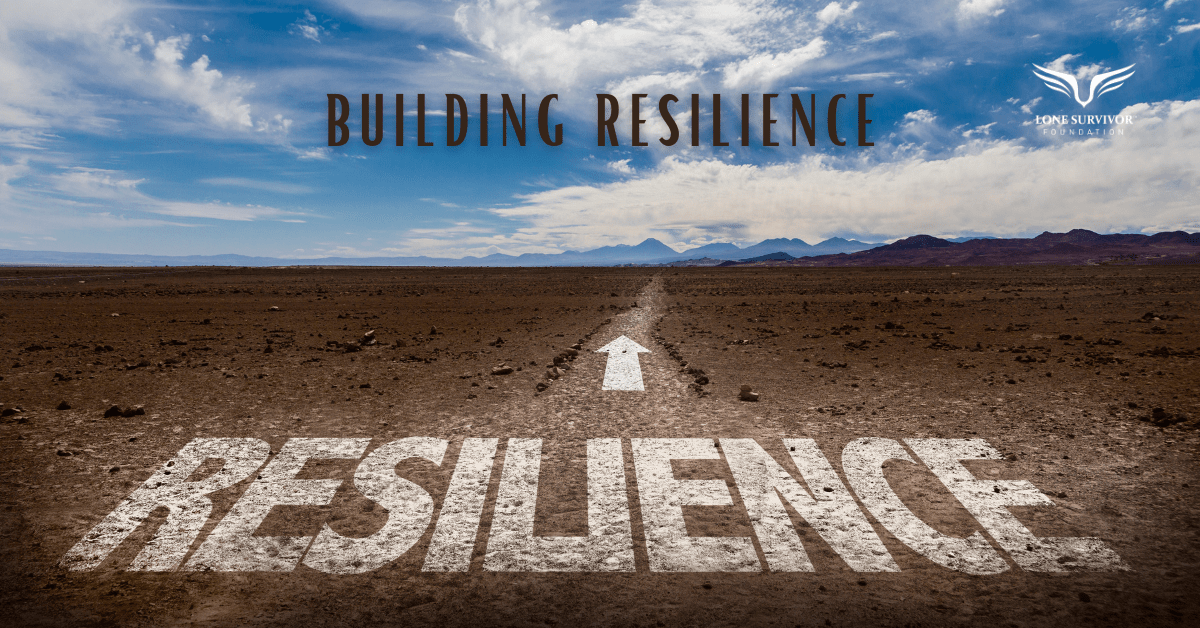Being resilient means bouncing back and adapting from adversity, rather than dwelling on failures and being afraid to move past them. For people who struggle with anxiety, resilience can be difficult to build, as the fear of failure or embarrassment isn’t easy to ignore, but with practice and patience, you can move towards your goals and look for more opportunities of self-discovery and growth. For Veterans, resilience comes with the job when you’re deployed, but recovering from trauma or PTSD can chip away at your resilience, causing you to panic over small mistakes. Today, we’re talking about how to practice resilience in everyday life; with tips on how to get better at bouncing back, the elements essential to resilience, and how you can change your mindset to a more positive outlook, this is the blog to read.
Resilience has a few different definitions, but there are three main takeaways that make up resilience: Challenge, commitment, and personal control.
Challenging your mindset can be difficult, but resilient people view trials and tribulations in their lives as challenges to accept, rather than impossible hurdles to jump. Mistakes are lessons to learn from, and become opportunities for growth, instead of negative reflections on their self-worth. In order to get better at seeing difficulties as challenges, accept your past failures as exactly as they are: in the past. Recognizing that setback as something temporary, rather than permanent, will help you remember that you are more than your past mistakes will make you think you are.
Committing yourself to your goals and your lives will give you a compelling reason to get out of bed each morning. Commitment like this doesn’t just mean your job or your dreams– resilient people commit themselves to their relationships with their friends and families, the causes they care about, and their spiritual beliefs, as well. By committing to yourself, you can separate your failures from yourself quite easily. For example, if you find that you’re not very good at accomplishing a certain task, you would tell yourself that you’re not good at that task, rather than that you’re not good at anything. Not excelling in one task doesn’t mean you can’t do other tasks even better! Resilient people learn to view their mistakes as something outside of them, rather than something innate to who they are.
Personal control means focusing on situations, events, and efforts that you have control over. Instead of worrying about aspects of life that you cannot control, like people’s opinions of you and their reactions to things you said in the past, focus on the future and how you can improve upon yourself. People who worry about uncontrollable events often feel they need to take action, but cannot, so they feel lost and hopeless as a result. When bad events occur outside of your control, one way to remain resilient through it is to see the circumstances or another party as the cause of the negative outcome, rather than yourself. Of course, taking responsibility if it was your actions is important, but if you didn’t get the support you needed to finish a certain task, or you were late to work, quite often, that’s not your fault. Reframing bad events as “I didn’t receive enough help to finish my task” can help you realize that not everything is your own fault.
There are a few different ways to help yourself be resilient, even in small adjustments. Some that we recommend are:
- Get connected
Build relationships with those around you that are long-lasting, so they can offer the support and acceptance you need in good and bad times. You can also establish connections with peers around you by volunteering for your community! One way that Veterans can build connections with peers that will understand their struggles is to join a support group specifically made for Veterans; Operation Red Wings Foundation’s group sessions are one place where Veterans come together to share their stories and find connections in the community.
2. Make each day count
Do something that makes you feel accomplished each day. Even if it’s just brushing your teeth each morning and night, that’s something you’ve accomplished today! Some people invest in habit trackers to help them check off each accomplishment– but a notebook and pen to write them down always works, too.
3. Learn from your experiences
How have you coped with hardships in the past? Consider what you did in that moment (or moments) and learn from those experiences on what worked and what didn’t. Guide your future behavior through your past actions. A positive outlook may take time to cultivate, but it helps your mindset and your mood in the long run. Building self-confidence doesn’t come easy, but if you firmly believe that you’ll achieve success eventually, even with any setbacks or stresses you might face, that confidence will allow you the bravery to take risks– and face the consequences, no matter what.
4. Remain hopeful
You can’t change the past, but the future is ready to be molded in your favor! Resilient people have solid goals and the drive to achieve them, and focus their energy on evolving themselves from who they were in the past. While a situation may seem overwhelming in the moment, it may not leave much impact on your life in the future. Choosing your response to certain outcomes will allow you to remain positive, rather than letting anger or anxiety take over.
5. Take care of yourself
Take care of your own needs and feelings, first and foremost! Whether it be via exercise, a soothing bath, meditation, or whatever grounds you, finding ways to relax each day will help lower stress levels, and as a result, you build resilience through relaxation. A good sleep routine is a solid stepping stone to begin your journey towards resilience, and meditation or deep breathing exercises often help when you’re in the heat of the stressful moment.
6. Set yourself some goals!
Planning effective and smart goals to achieve can make a world of difference– having something in the future to strive towards makes you feel more accomplished each day as you take steps towards finishing your goal. Whether your goal is to get active, read more, or attend a certain class each day, setting something to achieve in the future makes a world of difference to your outlook.
While becoming a resilient person doesn’t happen overnight, with patience, diligence, and a lot of grit, it is possible to transform your outlook from a glass-half-empty to a glass-half-full state of mind. Veterans may need an extra boost from their peers and loved ones, but achieving a more positive and resilient mindset can help them recover from PTSD, anxiety, and more with the knowledge that they can recover. For more veteran resources, check out Operation Red Wings Foundation’s page.






